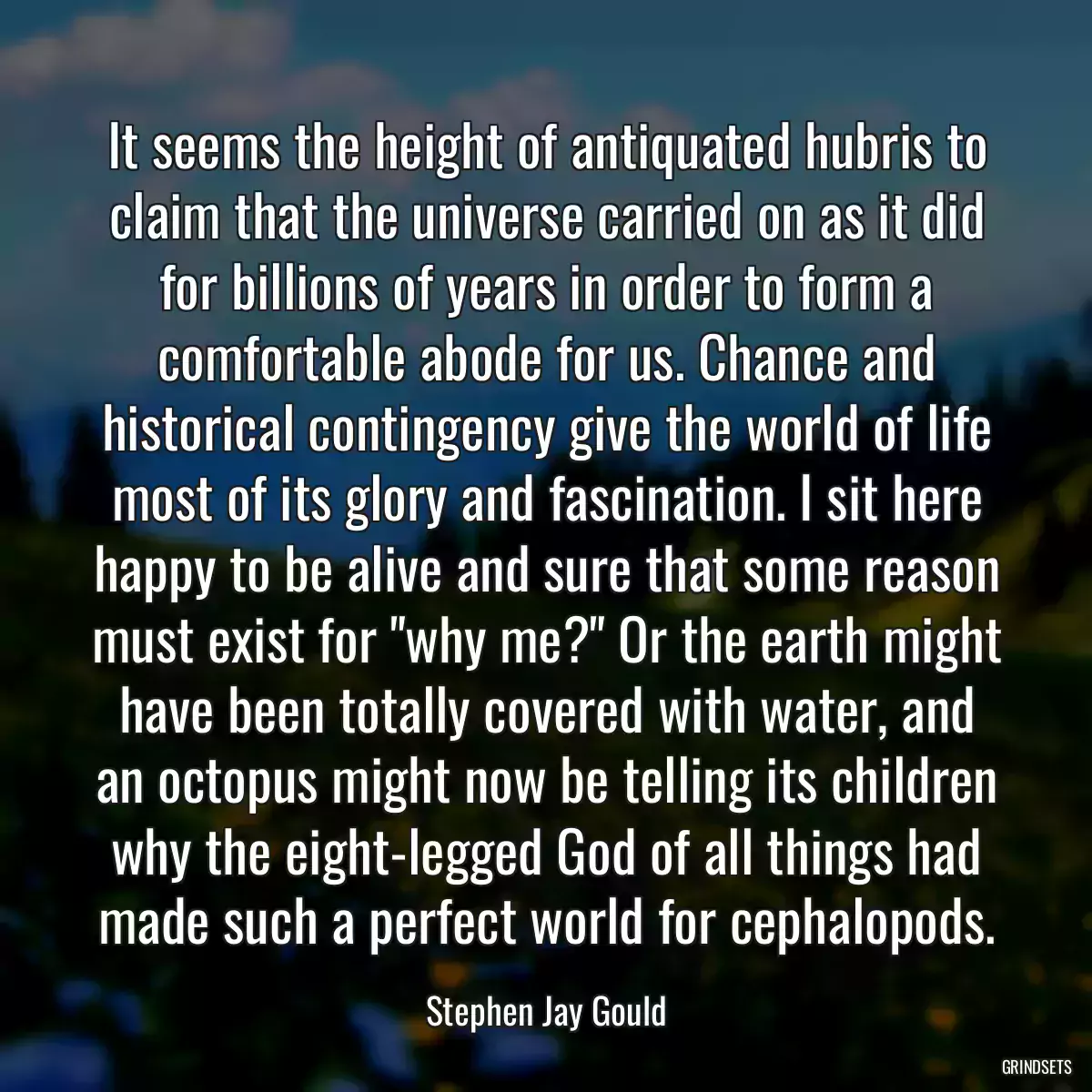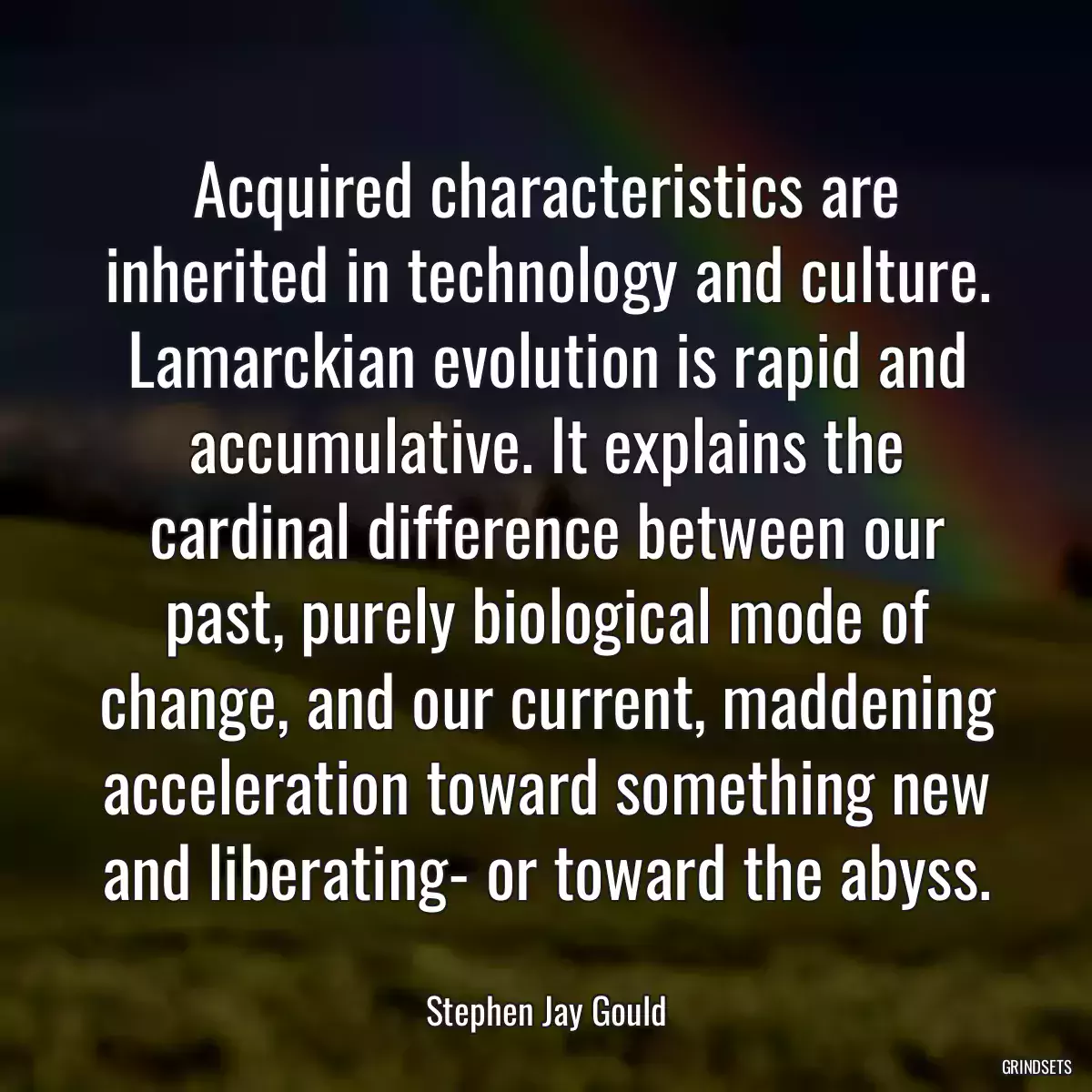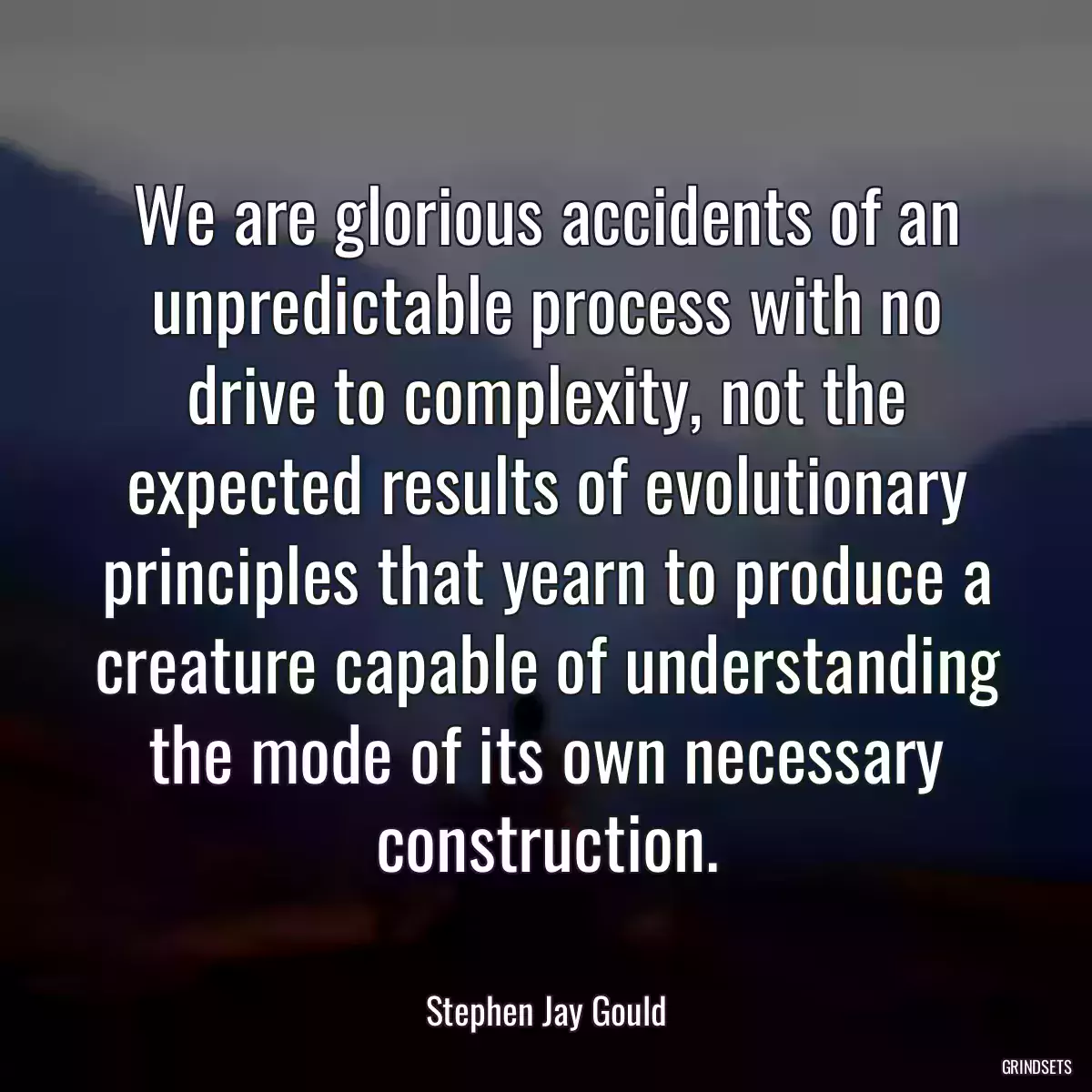
It seems the height of antiquated hubris to claim that the universe carried on as it did for billions of years in order to form a comfortable abode for us. Chance and historical contingency give the world of life most of its glory and fascination. I sit here happy to be alive and sure that some reason must exist for "why me?" Or the earth might have been totally covered with water, and an octopus might now be telling its children why the eight-legged God of all things had made such a perfect world for cephalopods.

